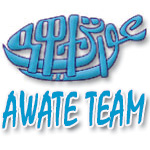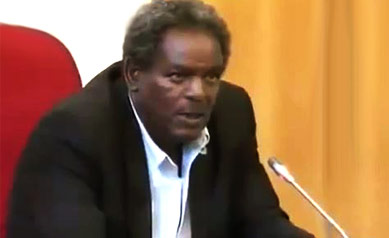Eritrea’s Dismal Human Development Report

The United Nations has published its 2013 Human Development Report (HDR) and Eritrea ranks number 181 in the world, that is, 7th from the bottom.
With a Human Development Index (HDI) of 0.351, Eritrea is ahead of only 6 mostly war-torn African nations: Niger, Congo, Mozambique, Chad, Burkino Faso and Mali.
The HDI is a composite index which uses three metrics; i.e., mortality, education and income. The HDI, according to the UN, measures “achievement in three basic dimensions of human development – a long and healthy life, knowledge and a decent standard of living.”
Recognizing the disparity in global development, the UN classifies nations as belonging to one of the following four human development groups: very high, high, medium, low. Eritrea’s human development index is dismal even by the standards of the low human development countries.
You can find the UN report here. What follows is our summary.
HDR Digest
1. Life Expectancy at Birth
a. Definition: “Number of years a newborn infant could expect to live if prevailing patterns of age-specific mortality rates at the time of birth stay the same throughout the infant’s life.”
b. Eritrea: 62
c. Low Human Development Country Average: 59.1
2. Mean (Average) Years of Schooling
a. Definition: “Average number of years of education received by people ages 25 and older, converted from education attainment levels using official durations of each level.”
b. Eritrea: 3.4
c. Low Human Development Country Average: 4.2
3. Expected Years of Schooling:
a. Definition: “Number of years of schooling that a child of school entrance age can expect to receive if prevailing patterns of age-specific enrollment rates persist throughout the child’s life.”
b. Eritrea: 4.6
c. Low Human Development Country Average: 8.5
4. Gross National Income (GNI) Per Capita
a. Definition: “Aggregate income of an economy generated by its production and its ownership of factors of production, less the incomes paid for the use of factors of production owned by the rest of the world, converted to international dollars using PPP rates divided by midyear population.”
b. Eritrea: 531
c. Low Human Development Country Average: 1,633
5. Human Development Index
a. Definition: The Human Development Index is a composite of three indices: life expectancy index, education index, and Gross National Income per capita index. Since this is a comparative report, the goal posts of the UN for its indices are between 0 and 1. The indices are arrived by first calculating each index and then taking a composite. For example, to establish the life expectancy index, the formula used is the following: Life expectancy index = (actual value – minimum value) / (maximum value – minimum value) For life expectancy the maximum value is that of Japan (at 80) and the minimum value is set at 20. Thus, Eritrea’s life expectancy index would be (62-20)/(80-20) or 42/60 or 0.7. The same process is repeated for the education (knowledge) index and the income (standard of living) index. The composite of the three indices is arrived at by taking the cube root of the products of the indices.
b. Eritrea: 0.351
c. Low Human Development Country Average: 0.466
Trend Analysis
The UN has been publishing the HDR since 1990 and Eritrea has been a UN-recognized state since 1993; however, the data available on Eritrea is spotty and year-to-year comparisons are difficult. The UN has published HDI for Eritrea for only three years: 2011, 2012, 2013.
A year-to-year comparison for the three years would show that Eritrea’s HDI has been:
0.342 in 2011
0.346 in 2012
0.351 in 2013
While this analysis may appear to show progress for Eritrea, the information is incomplete unless one also adds the average HDR for the least developed countries for the same years:
0.461 in 2011
0.464 in 2012
0.466 in 2013
If one then calculates a deviation from the mean for the three years, it shows that Eritrea is, at best, stuck and making no progress or, at worst (based on its country-rank compared to, say, 2011) regressing. For example, in 2011 Eritrea was ranked #177 (ahead of Guinea, Central African Republic, Sierra Leone, Burkino Faso, Liberia, Chad, Mozambique, Burundi, Niger and Congo). In 2013 it is ranked # 181 having been overtaken by Guinea, Central African Republic, Sierra Leone and Liberia.
Conclusion
Every organization that provides reports on the civil liberties enjoyed by citizens has ranked Eritrea at or near the bottom. Whether issued by the State Department, the United Nations, Amnesty International, Human Rights Watch, Committee to Protect Journalists, Reporters Without Borders, Transparency International or Freedom House, their annual reports have all said that the administration of Isaias Afwerki is a wanton violator of Eritreans civil liberties and human rights.
The Eritrean regime has dismissed these reports and said that it is focused on improving Eritrea’s quality of life. But the most reliable report on Eritreans quality of life is the UN’s Human Development Report and Eritreans quality of life is either stuck or regressing. So, Eritreans now find themselves in the unenviable situation where they have no human rights, no civil liberties and no improvement in their quality of life to use as a consolation prize.
awateteam@awate.com


Awate Forum